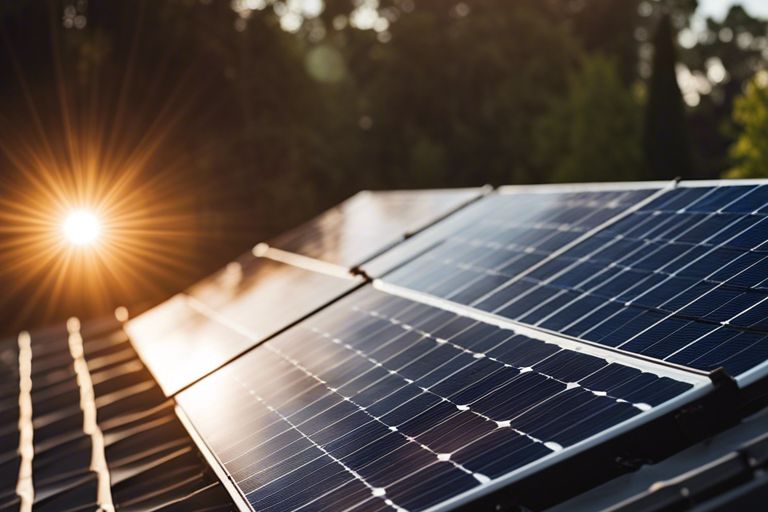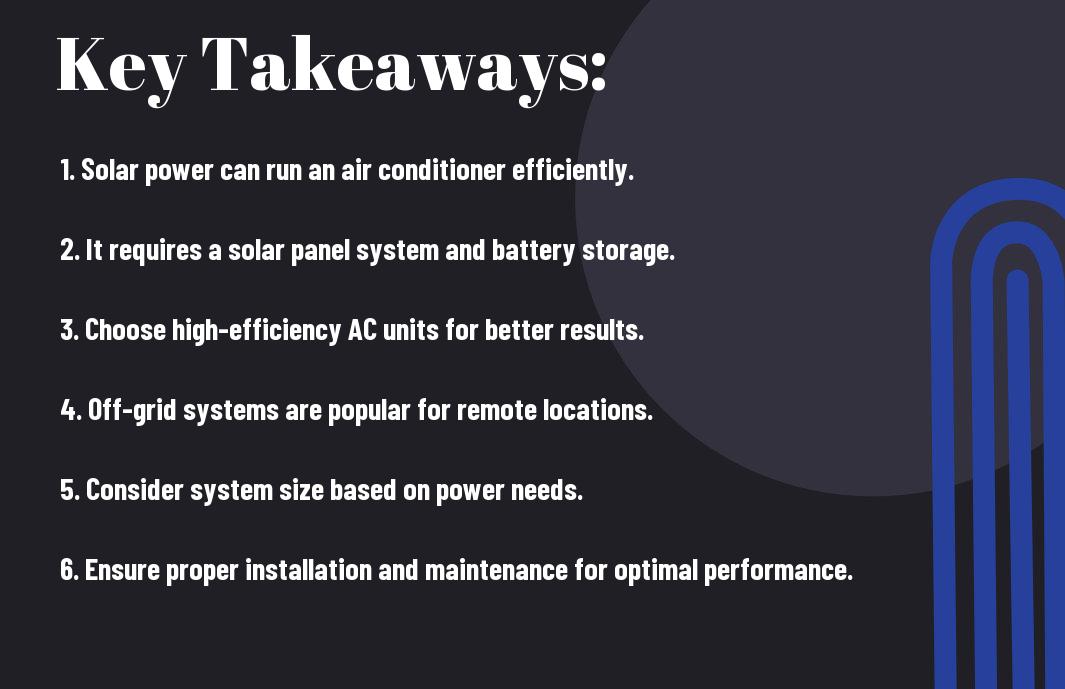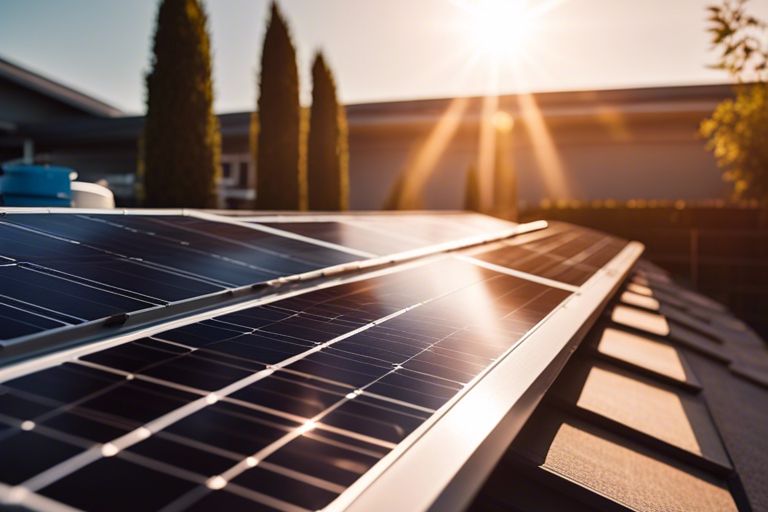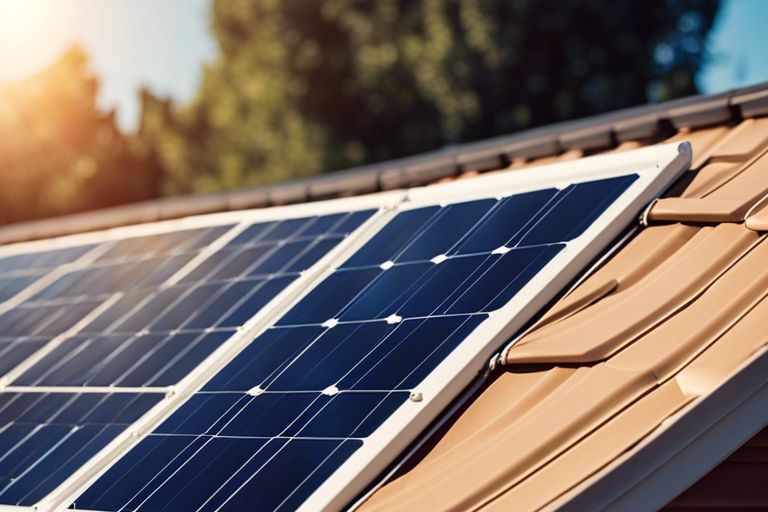There’s a growing interest in utilizing solar power to run household appliances, but can it handle the energy demands of an air conditioner? In this informative post, you’ll discover how solar power can indeed run an air conditioner efficiently. From understanding the power requirements of your air conditioner to selecting the right solar panels and storage systems, you’ll learn how to make your cooling system more environmentally friendly and cost-effective. Let’s explore how you can stay cool while reducing your carbon footprint with solar-powered air conditioning.

Key Takeaways:
- Solar power can run an air conditioner: While it is possible to power an air conditioner using solar power, the size and efficiency of the solar panel system needed will depend on factors such as the size of the air conditioner and the climate of the location.
- Efficiency is crucial: To effectively run an air conditioner using solar power, it is vital to have an efficient system that can convert sunlight into electricity at a high rate. Additionally, the air conditioner itself should be energy-efficient to minimize power consumption.
- Consider energy storage: To ensure continuous operation of an air conditioner when sunlight is not available, it is important to have an energy storage solution, such as batteries, to store excess energy generated by the solar panels.

The Basics of Solar Power
How Solar Panels Generate Electricity
A fundamental component of solar power is the solar panel, which is typically made up of multiple photovoltaic (PV) cells. These cells work by absorbing sunlight and converting it into direct current (DC) electricity through the photovoltaic effect. Each PV cell consists of two layers of semiconducting materials, usually silicon, which create an electric field when exposed to sunlight.
Advantages of Solar Power
When considering solar power for your energy needs, it’s vital to weigh the advantages it offers. One significant advantage is that solar power is a renewable energy source, meaning it is sustainable and will not run out. Additionally, solar panels produce electricity without emitting greenhouse gases or other pollutants that harm the environment.
Advantages of Solar Power
Furthermore, by installing solar panels on your property, you can potentially reduce your electricity bills and even earn money by selling excess power back to the grid through net metering programs. This not only helps you save money in the long run but also promotes energy independence and contributes to a cleaner environment.

The Basics of Air Conditioning
How Air Conditioners Work
Any modern air conditioner operates on a simple refrigeration cycle. The process begins with the compressor, which pressurizes the refrigerant gas and raises its temperature. The hot gas then flows through a series of coils where it dissipates heat and turns into a cooler liquid. This liquid is then circulated through an expansion valve, causing it to evaporate and absorb heat from the surrounding air. The cooled air is then blown into your home while the warm air is vented outside.
Energy Consumption of Air Conditioners
The energy consumption of an air conditioner is typically measured in British Thermal Units (BTUs) per hour. The higher the BTU rating, the more cooling power the unit has. To calculate the energy consumption of your air conditioner, you can multiply the BTU rating by the number of hours it runs in a day. For example, a 10,000 BTU air conditioner running for 10 hours a day consumes 100,000 BTUs of energy.
Consumption can vary depending on factors such as the size of your home, the temperature setting on the thermostat, and the efficiency of the air conditioner. It’s necessary to choose an air conditioner with the right BTU rating for your space to ensure optimal cooling efficiency while minimizing energy waste.
Can Solar Power Run an Air Conditioner?
Theoretical Possibilities
Powering an air conditioner with solar energy is theoretically possible as solar panels can generate electricity to run your appliance. Theoretically, if you have a sufficient number of solar panels installed on your roof or property, you can generate enough electricity to power an air conditioner during the day when the sun is shining.
Real-World Limitations
To run an air conditioner solely on solar power in the real world, you would need to consider several limitations. The amount of sunlight available, the efficiency of your solar panels, the size of your air conditioner, and your energy consumption patterns all play crucial roles in determining if solar power can meet your cooling needs.
However, it’s necessary to note that air conditioners typically consume a significant amount of energy, especially during hot summer days when you need them the most. This high energy demand may require a large and expensive solar panel system to ensure continuous and reliable power supply to your air conditioner.
Factors Affecting Solar-Powered Air Conditioning
After considering the feasibility of running your air conditioner on solar power, you need to take into account various factors that can affect the system’s performance and efficiency. Here are some key factors to consider:
Climate and Location
Any solar-powered air conditioning system’s effectiveness is heavily influenced by the climate and location where it is installed. If you live in a region with long hours of sunlight and high solar radiation, your system is more likely to generate sufficient power to run the air conditioner efficiently. On the other hand, if you reside in an area with frequent cloud cover or limited sunlight, the system may not be as effective.
System Size and Efficiency
Location is also a critical factor in determining the size and efficiency of the solar-powered air conditioning system you need. The amount of sunlight your location receives will impact the size of the solar panels required to generate enough power to run the air conditioner effectively. Additionally, the efficiency of the system’s components, such as the inverter and air conditioner unit, will affect how much energy is converted and utilized for cooling your space.
To ensure optimal performance, it’s imperative to consult with a professional to determine the right system size and components based on your location and cooling needs.
Battery Storage and Backup
Backup power and battery storage are crucial components of a solar-powered air conditioning system. During periods of low sunlight or at night when the sun is not shining, the system will rely on stored energy in the batteries to continue running the air conditioner. Choosing the right battery storage capacity is imperative to ensure uninterrupted cooling and optimal performance.
With proper battery storage and backup systems in place, you can enjoy the convenience of solar-powered air conditioning while ensuring consistent cooling comfort in your home.
Types of Solar-Powered Air Conditioning Systems
For those looking to harness the power of the sun to cool their homes, there are several types of solar-powered air conditioning systems to consider. These systems vary in their design and functionality, catering to different needs and preferences. Here is a breakdown of the three main types of solar-powered air conditioning systems:
Grid-Tied Systems
One option is a grid-tied system, which connects your solar panels to the local electricity grid. This allows you to use solar power during the day to run your air conditioner and other appliances. Any excess energy generated by your solar panels can be fed back into the grid for a credit or stored for later use. Grid-tied systems are typically more cost-effective and easier to install compared to off-grid systems.
| Solar panels connected to the grid | Allows for using solar power during the day |
| Excess energy can be fed back into the grid or stored | Generally more cost-effective and easier to install |
| Relies on the grid for power at night or during low sunlight | Requires grid connection and may not be suitable for remote locations |
Off-Grid Systems
The other option is an off-grid system, which operates independently of the utility grid. Off-grid systems use batteries to store excess solar energy for use when the sun is not shining. This allows you to have a continuous power supply for your air conditioner even in remote areas where grid power is unavailable. Off-grid systems are ideal for those looking to achieve energy independence and self-sufficiency.
| Operates independently of the utility grid | Uses batteries to store excess solar energy |
| Provides continuous power supply even in remote areas | Allows for energy independence and self-sufficiency |
| Higher upfront costs for batteries and equipment | Requires careful monitoring of energy usage and battery levels |
To introduce these systems to you, let’s examine deeper into each type of solar-powered air conditioning system.
Hybrid Systems
With hybrid systems, you get the best of both worlds by combining elements of grid-tied and off-grid systems. These systems are versatile and can switch between grid power, solar power, and battery storage as needed. Hybrid systems offer flexibility and efficiency, allowing you to optimize your energy usage and reduce reliance on the grid. They are a great option for those looking for a balanced approach to solar-powered air conditioning.
| Combines elements of grid-tied and off-grid systems | Offers flexibility in power sources |
| Optimizes energy usage and reduces grid reliance | Provides a balanced approach to solar-powered air conditioning |
Systems that utilize hybrid technology are becoming increasingly popular due to their ability to adapt to varying energy needs and optimize efficiency.
Benefits and Drawbacks of Solar-Powered Air Conditioning
Environmental Benefits
Your conditioning system powered by solar energy provides several environmental benefits. By harnessing the power of the sun to cool your home, you are reducing your carbon footprint and reliance on traditional fossil fuels. Additionally, solar-powered air conditioning systems operate quietly, eliminating the noise pollution associated with conventional air conditioners. This eco-friendly solution allows you to enjoy a cool and comfortable indoor environment while minimizing your impact on the environment.
Cost Savings
For cost-conscious consumers, solar-powered air conditioning offers significant long-term savings. While the initial investment in solar panels and the air conditioning system may be higher than traditional methods, you can potentially recoup these costs over time through reduced energy bills. In some cases, you may even generate excess energy that can be sold back to the grid, further offsetting your initial investment.
It is vital to consider tax incentives and rebates offered for investing in renewable energy sources like solar power. These financial incentives can help lower the overall cost of installing a solar-powered air conditioning system, making it a more economical choice in the long run.
Technical Challenges
Savings and environmental benefits aside, there are some technical challenges associated with solar-powered air conditioning systems. One of the main issues is the intermittent nature of solar power. Cloudy weather or nighttime can impact the system’s ability to cool effectively, potentially requiring a backup power source or energy storage solution. Additionally, the efficiency of solar panels may vary depending on factors like shading and panel orientation, which can affect the overall performance of the system.
With advancements in technology and energy storage solutions, these technical challenges are continuously being addressed to improve the reliability and efficiency of solar-powered air conditioning systems. It is vital to stay informed about the latest developments in the field to make the most of this sustainable and cost-effective cooling solution.
Summing up
Hence, after venturing into the question of whether solar power can run an air conditioner, you’ve gained valuable insights into the process and feasibility of using solar panels to power your AC unit. Note, solar power can indeed run an air conditioner, but it is necessary to understand the capacity and requirements of your specific system. If you’re looking to explore this option further, check out this informative article on Can I Run My Air Conditioner with Solar Panels? for more in-depth information.
Q: Can solar power run an air conditioner?
A: Yes, solar power can run an air conditioner. With the right solar panel system and battery storage, it is possible to power an air conditioner using solar energy.
Q: What size solar panel system is needed to run an air conditioner?
A: The size of the solar panel system needed to run an air conditioner depends on the energy requirements of the air conditioner, the climate of the location, and the hours of sunlight available. Generally, a larger solar panel system will be needed to power an air conditioner compared to other household appliances.
Q: Can a solar-powered air conditioner work at night or on cloudy days?
A: A solar-powered air conditioner can work at night or on cloudy days if it is connected to a battery storage system. The excess energy generated by the solar panels during the day can be stored in the batteries and used to power the air conditioner when sunlight is not available. However, the system may not be as efficient as when it is running on direct solar power.
Can you sell power back to the grid in Oregon
